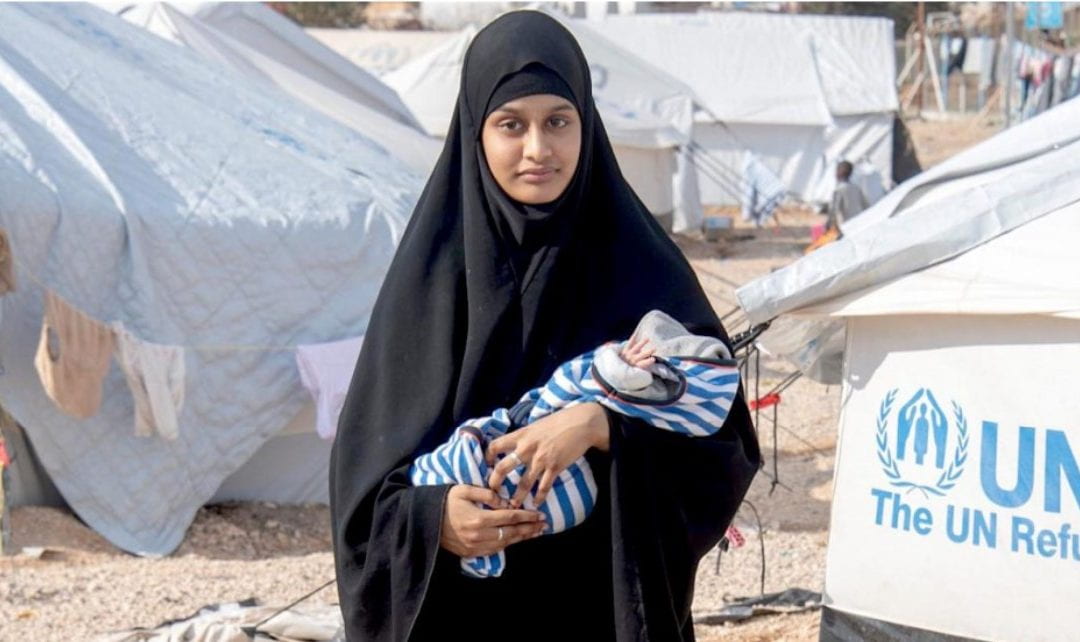Over the course of the growth of the Islamic State (IS), almost half of recruited sympathizers were women coming from over 50 nations, globally. Once a part of IS, the roles of these women were varied – some were female fighters and others were simply wives caring for their children. Following the disintegration of IS starting in the end of 2017, many of these women and their children were stuck in limbo after fleeing or being detained by the Syrian Democratic Forces (SDF) in Syrian refugee camps along with thousands of IS fighters and other refugees.
After the collapse of the pseudo-caliphate, many of the women and children of IS either fled or were detained in the al-Hol and Roj camps in northeastern Syria. These camps have grown from 11,000 people, to more than 70,000 since 2017 and are places deplete of resources and increasing in despair and violence. The women and children taken from IS-controlled areas who are not citizens of those places, or of Syria, are called “third country nationals.” Unlike typical refugees, these “third country nationals” are not protected by international conventions, meaning it becomes the duty of their governments to look after them and arrange for repatriation. Women with links to IS are targets of discrimination in the repatriation process, making their requests to return to their homeland sometimes futile and always met with great resistance.
Calls for the repatriation of these women and their children back to their countries of origin have come from both humanitarian and human rights organizations, and the women themselves. Return and repatriation of foreign fighters and their families is a slow and oftentimes unclear process. The UN has encouraged Member States to follow the principles of international human rights law and international refugee law when working to repatriate, reintegrate, and at times prosecute these women and children. States are encouraged to do individualized assessments to assess that person’s affiliation and/or victimhood, which then guides their responsive action. Specifically, person’s found to have committed crimes should be given the full scope of due process, and those who haven’t should begin the process of reintegration and rehabilitation into a non-extremist society.
Years after IS’s fall, the fate of some of these women and their children remains uncertain. The international community, especially in Europe, is struggling to balance competing interests in national security, with an obvious concern for human rights violations by leaving their citizens in Syrian refugee camps, leading many to draw out the process of repatriation. Although these European governments have legitimate security concerns repatriating persons affiliated with IS, experts have said that repatriation comes with less risks when compared with leaving their nationals in Syria.
Countries outside of Europe have commenced the process of repatriation and prosecution of their citizens from Syria, and in some cases reintegrated them into society. These countries include the United States, Kazakhstan and Turkey.
In contrast, in Europe the process has been more tenuous. The UK has taken an extreme position on the repatriation of IS women and children, setting the precedent with the revocation of Shamima Begum’s UK citizenship in early 2019. Britain has since stripped the citizenship of over 20 IS-affiliated women. Although it is against international law to leave a person stateless, where the UK has been able to find a loophole, it has taken it. In the case of Ms. Begum, she was found to have citizenship to Bangladesh, but even they refused to grant her citizenship, forcing her to live a life stateless in al-Hol camp. France, who is faced with the potential of receiving the most repatriated nationals from Syria – over 400 – has been similarly hesitant in the repatriation process, citing security concerns. The Netherlands and Sweden have said they may accept repatriated children, but without their mothers.
European countries like Belgium, Denmark, Germany and Finland have recently taken more action, working to repatriate a number of women in children. Information regarding the increasing security risk associated with leaving European citizens in the Syrian camps has led to the spike in the repatriation process. In October of 2021, Germany and Denmark repatriated 37 children and 11 IS women. Belgium is in the process of repatriating a number of women and their children, similar to Finland.
The growing concern among research-based analysts that keeping foreign women and children in Syria will exacerbate the problem of extremism and indoctrination, while simultaneously allowing the continuation of a humanitarian crisis has put pressure on the international community to take action. Even with the challenges countries face repatriating their citizens, there is more risk in the continued inaction of the states than in commencing the repatriation process. Leaving their citizens in Syrian camps has exacerbated the problem many States sought to eliminate and with the growing realization of this, the aim towards reintegration and rehabilitation is inciting vigor into the eventual repatriation of many of the IS-affiliated women and their children.
Author Biography: Isabel Treichel is a Moderator of the International Law Society’s International Law and Policy Brief (ILPB) and a J.D. candidate at The George Washington University Law School. She has a Bachelor of Arts in Political Science with minors in German and Law & Psychology from the University of Southern California.

